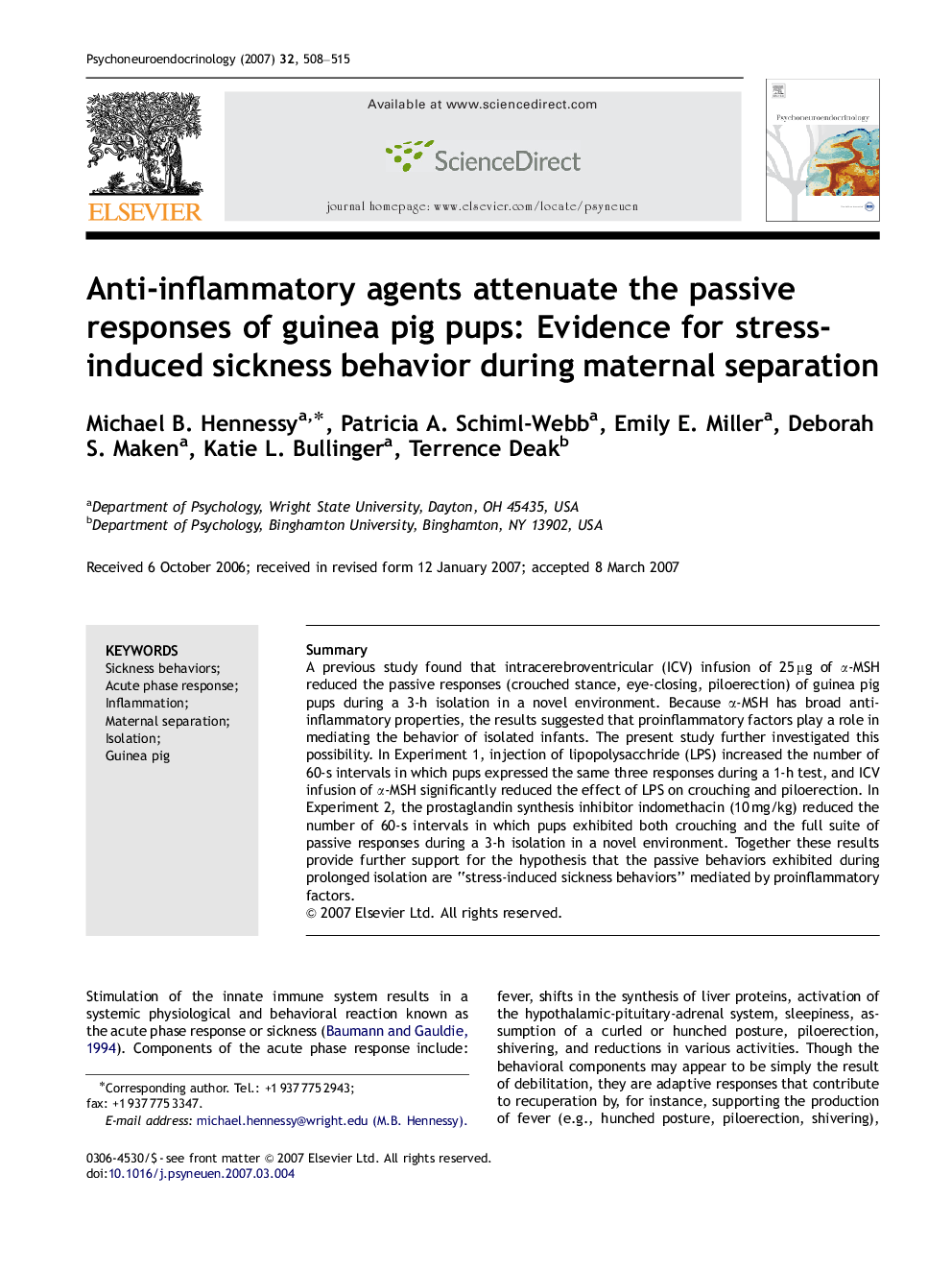| Article ID | Journal | Published Year | Pages | File Type |
|---|---|---|---|---|
| 337418 | Psychoneuroendocrinology | 2007 | 8 Pages |
SummaryA previous study found that intracerebroventricular (ICV) infusion of 25 μg of α-MSH reduced the passive responses (crouched stance, eye-closing, piloerection) of guinea pig pups during a 3-h isolation in a novel environment. Because α-MSH has broad anti-inflammatory properties, the results suggested that proinflammatory factors play a role in mediating the behavior of isolated infants. The present study further investigated this possibility. In Experiment 1, injection of lipopolysacchride (LPS) increased the number of 60-s intervals in which pups expressed the same three responses during a 1-h test, and ICV infusion of α-MSH significantly reduced the effect of LPS on crouching and piloerection. In Experiment 2, the prostaglandin synthesis inhibitor indomethacin (10 mg/kg) reduced the number of 60-s intervals in which pups exhibited both crouching and the full suite of passive responses during a 3-h isolation in a novel environment. Together these results provide further support for the hypothesis that the passive behaviors exhibited during prolonged isolation are “stress-induced sickness behaviors” mediated by proinflammatory factors.
